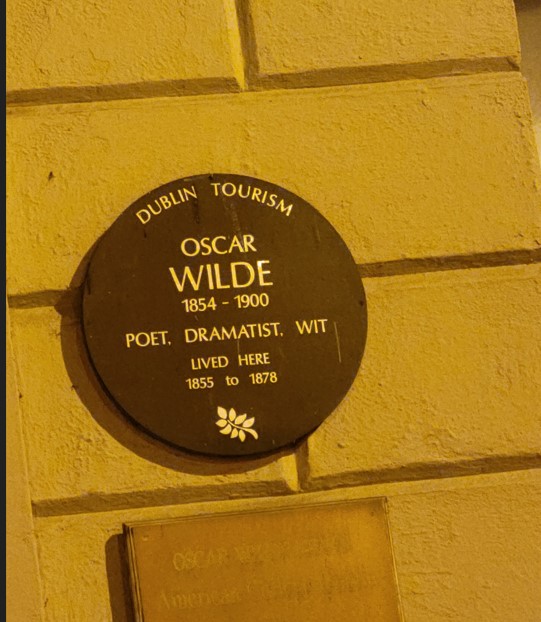It’s hard to believe that this will be my final blog post for this class, the semester flew by, and just like that, I have one more year left of college. I went into this class not being 100% sure what to expect, only knowing that Wilde was one of the authors who I found fascinating, yet did not get to read about as much as I would have liked throughout the course of my English major. I’m Irish myself, by ancestry anyhow, and of course Wilde is held in high regard alongside names like Joyce and Yeats as one of the great Irish writers of all time. Furthermore, I always knew Wilde as a legendary figure within the LGBT community, one of the great martyrs who was essentially worked to death for expressing his sexuality. The more one reads of Wilde, the easier it is to lionize him, as he spoke and acted with perhaps unparalleled wit and humor, as Bosie said, his words were spoken with the confidence and intelligence of a pre-written speech.
I went into this course knowing Wilde as many things, a genius, a martyr, an icon, but I’m leaving it with a new understanding of Wilde as a man. Largely from reading the transcripts from his trials, and De Profundis, I realized the pedestal we place Wilde on, while understandably high, distorts who he was as a person and, though he likely wouldn’t like me connecting the two, as an artist. Through the non-fiction works in this course, I saw the many flaws Wilde carried with him, his arrogance, self-centeredness, and, at times, downright irresponsibility in the face of dire circumstances. I made no attempts to hide my frustration with him, for it seemed to me Wilde was a hypocrite, arguing he has a higher duty to art than anything else, then allowing his own artistic flame to be snuffed out for reasons I still do not fully comprehend. So many great artists have been taken from the world prematurely, that it angered me somewhat that Wilde essentially committed suicide by judge, refusing to leave the country when he had the opportunity, and not taking the court case for which his life depended all that seriously (though, to his credit, it likely would not have mattered much).
However, in my judgment of Wilde, I failed to see him as he was, holding him to a higher standard (one he set himself, but still) than is fair to him, I forgot that, at the end of the day, Oscar Wilde is just a man, and every man has a breaking point. The exhaustion that must come with keeping a secret like homosexuality must have been excruciating to Wilde, and it seems to me that it got to the point where he simply wanted it all to be over, one way or the other. In this way, Wilde, by acting how we would expect a character from one of his plays to act at his own trial, he is showing his true self. In the end, Wilde may have argued he was staying true to his art, and that may be true, but ultimately, he was being true to himself, and in that way, I believe it is possible to extract a glimmer of triumph from Wilde’s complete and utter defeat; all he had to do to survive was to put on a mask, and be a different person for a few hours, but he refused, allowing himself to be destroyed, but not defeated.
